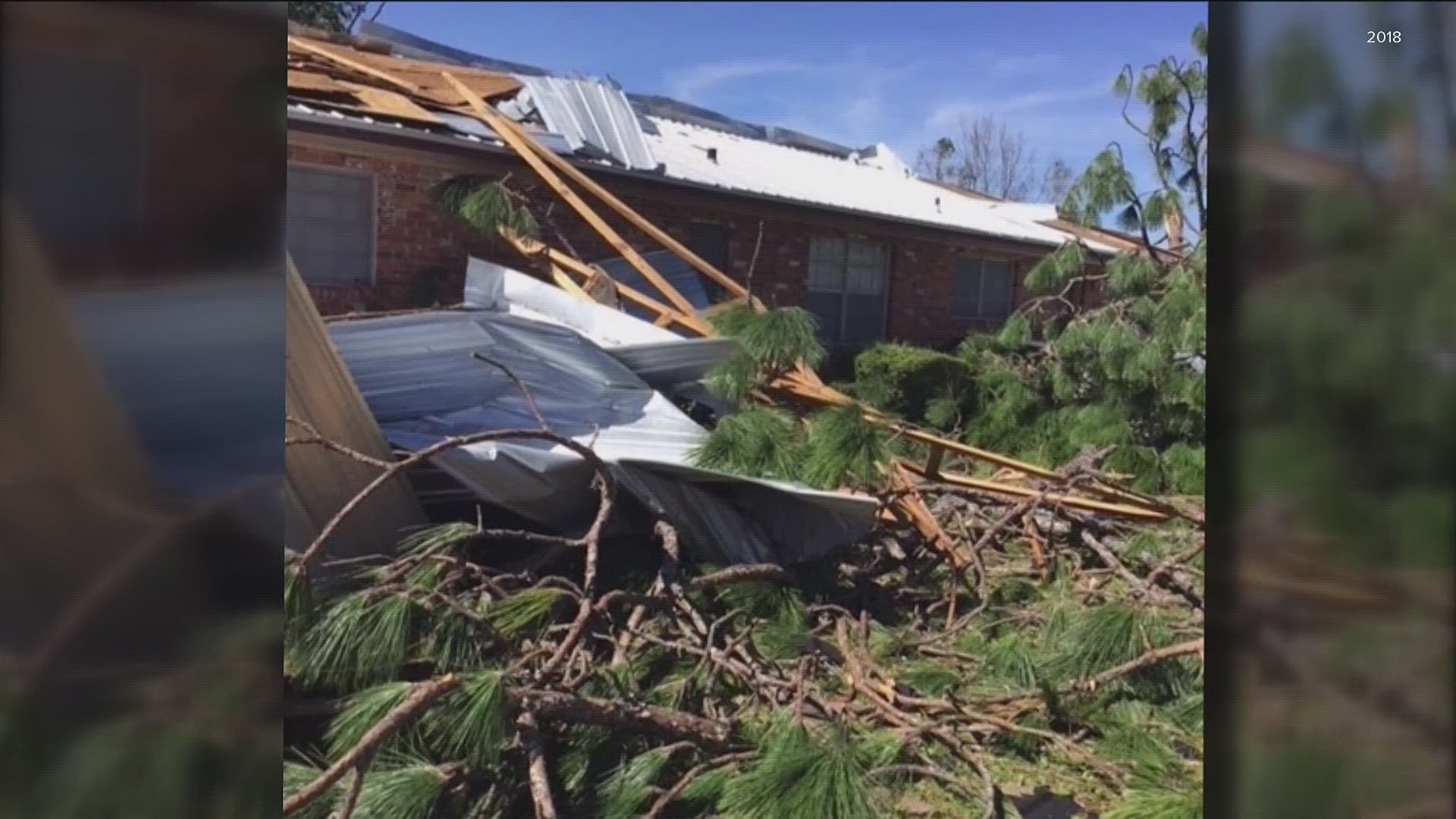GEORGIA, USA — The aftermath of Hurricane Michael is still being felt in communities and farms in Florida and south Georgia, five years later.
It was still a category 2 storm when it crossed the border into Georgia and hit at peak agricultural season. Farmers and residents in south Georgia experienced hurricane-force winds all the way to Macon destroying their crops.
Paul and Lucille Hunt were living in Marietta with family in 2018, a year after Hurricane Michael destroyed their home in Panama City. Pictures showed the wind-strewn debris, and the metal roof peeled off the house.
“We lost everything. It took us two and a half years to get back,” Paul said.
The two are now back in Panama City on the same street in a newly rebuilt home where they found the silver lining of their loss.
“We are in a much better place. We are just peaceful. It took all the trees out of my yard, all the pine trees, and I don’t have to rake anything anymore,” Hunt said.
Over 100 miles north, trees still lay on the ground at Eric Cohen’s pecan orchard in Bainbridge, Georgia. The devastating natural disaster wiped out the crop on more than half of his 1,400 acres.
“We’re still losing trees. The wind broke the root system down low,” Cohen said.
It takes pecan trees 10 years to grow, an eternity for a farmer looking to recover. Eric decided not to replant most of his trees, but replaced a few. They will take about five years to mature.
“We lost generational money, you know. So, it just weighs on you,” Cohen said. “[We survived] by the grace of God. Thank goodness I started selling real estate, and I got involved with a company called Basic Care Plus. I helped develop it basically from the hurricane from all the mental illness. It was just so hard.”
Cohen now serves as an advisor for the Basic Care Plus health program that aims to improve access to healthcare in rural communities by providing everything from mental health to primary care in a membership-based plan on an app.
Hurricane Michael caused more than $2 billion in agriculture losses in south Georgia, a University of Georgia study said. The National Institutes of Health found that there was an impact on mental health a year after the hurricane to those impacted.
“In about ten minutes, you will have a doctor on-demand or a therapist on-demand, whatever you need. It was really designed for truck drivers and college kids, but I’m moving it to the farm and community as well,” Cohen said.
The Department of Agriculture created mental health resources after Hurricane Michael and organized a Farm Stress Summit this year. To learn more about those resources, click here.

